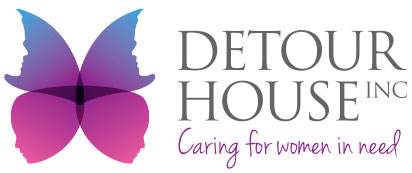Domestic violence is now the most lethal danger faced by a woman under the age of 45. More than one Australian woman dies every week at the hands of her partner, and more than one million Australian children are affected too.
Campaigners are now using the terms ‘epidemic’ and ‘national emergency’ when talking of domestic and family violence. Yet, the NSW Coalition Government is presently taking steps to destroy the hard-won advances made over 40 years of campaigning to give women safety and support at the very time they – and their children – need it most.
The Going Home Staying Home reforms being introduced across NSW seek to lump men, women, families and youth together.
It’s a myopic plan that fails to recognise the need for both gender-specific and specialist services.
It's a lazy, one-size-fits-all approach to the provision of homeless services that effectively winds NSW back to the dark old days, where abused and vulnerable women and their children had nowhere safe to turn.
It puts vital women’s refuges and women’s specialist services at risk of closure.
I've been lucky in my life. I was raised in a safe and supportive family environment.
I'm one of those people who had an intellectual understanding of domestic and family violence that left me completely unprepared for the brutal reality of what life for abused women and families is really like.
As the state member for Balmain, my electorate work brings me into contact with women-only support services, and I've been shocked by the stories women have shared with me.
Women make a difficult and dangerous decision in seeking to flee abusive relationships. It's a well-known fact that a woman and her children are most physically vulnerable to harm when the decision is made to leave a violent partner.
The events that lead them to the point of actually risking their lives to leave are horrifying, and I've come to personally understand how vital our existing specialised services are to supporting these women, particularly in the inner city where the most vulnerable gravitate.
Yet the government's plans in Going Home Staying Home enforce a prescriptive tendering process that actively prevents community service organisations from applying for money on the basis of gender-specialised services.
Presently, of the $15.39 million in funding for inner-city homelessness services, $11 million is going to four established faith-based organisations.
Of the remaining funds, just $1.1 million is left for services run solely by women for women, and only for those who are fleeing domestic violence.
With present government moves to strip at least $6 million from inner-city funds to distribute elsewhere, some vital services with proven track records face closure because they do not meet a wilfully gender-blind imperative to ‘catch-all’ different sections of the community.
In outlining the review of funding for homeless services, the former Community and Family Services Minister Pru Goward noted that “homeless people have different needs that call for different responses in different parts of the State. Targeted solutions are required to ensure no one falls through the cracks”.
Yet the Going Home Staying Home reforms, under the guise of streamlining, fail to recognise the very complex social issues that require gender-specific specialist services, including drug and alcohol abuse, mental health issues, domestic and family violence and childhood sexual abuse.
Gender is a complex factor in service provision – just as age and ability status are.
Also at risk of closure in Sydney is Detour House Inc in the inner-west, which has been operating for 30 years.
Detour provides care for women and girls who have experienced drug and alcohol dependency. It offers supported accommodation to young women aged 13 to 17 who are homeless or at risk of homelessness, but the organisation’s Young People’s Refuge for girls at Leichhardt has been forced to tender on the basis it offers services for both males and females aged 12 to 25.

The known and inherent dangers of putting at-risk girls and boys together – given the history of sexual abuse in institutional settings – is being shamefully ignored.
Other services under threat include the Stepping Out Housing Program based in Leichhardt, which opened in 1986.
Stepping Out works with women with children who are homeless, and survivors of childhood sexual abuse.
Also at risk is the B Miles Women’s Foundation and Women’s and Girls’ Emergency Centre.
All these women specialist homelessness services work in a strong and interconnected way with local women’s health services, such as the Leichhardt Women’s Community Health Centre, the Sydney Women’s Counselling Centre, and Rape and Domestic Violence Services Australia.
They provide safe housing and complete wraparound support to vulnerable women and children in Sydney and the Inner West.
Gender-specific specialised services haven't evolved without good reason. They exist to meet specific needs and those needs, alas, have not gone away.
Standing by and allowing the government to ignore the expertise of specialised provision doesn't merely destroy the successful legacy of campaigns won four decades ago, it's deprivation of a dire social necessity that will once again put vulnerable women and their children at risk.
* Jamie Parker is a Greens MLA for Balmain and a White Ribbon Ambassador.
Donate To New Matilda
New Matilda is a small, independent media outlet. We survive through reader contributions, and never losing a lawsuit. If you got something from this article, giving something back helps us to continue speaking truth to power. Every little bit counts.



